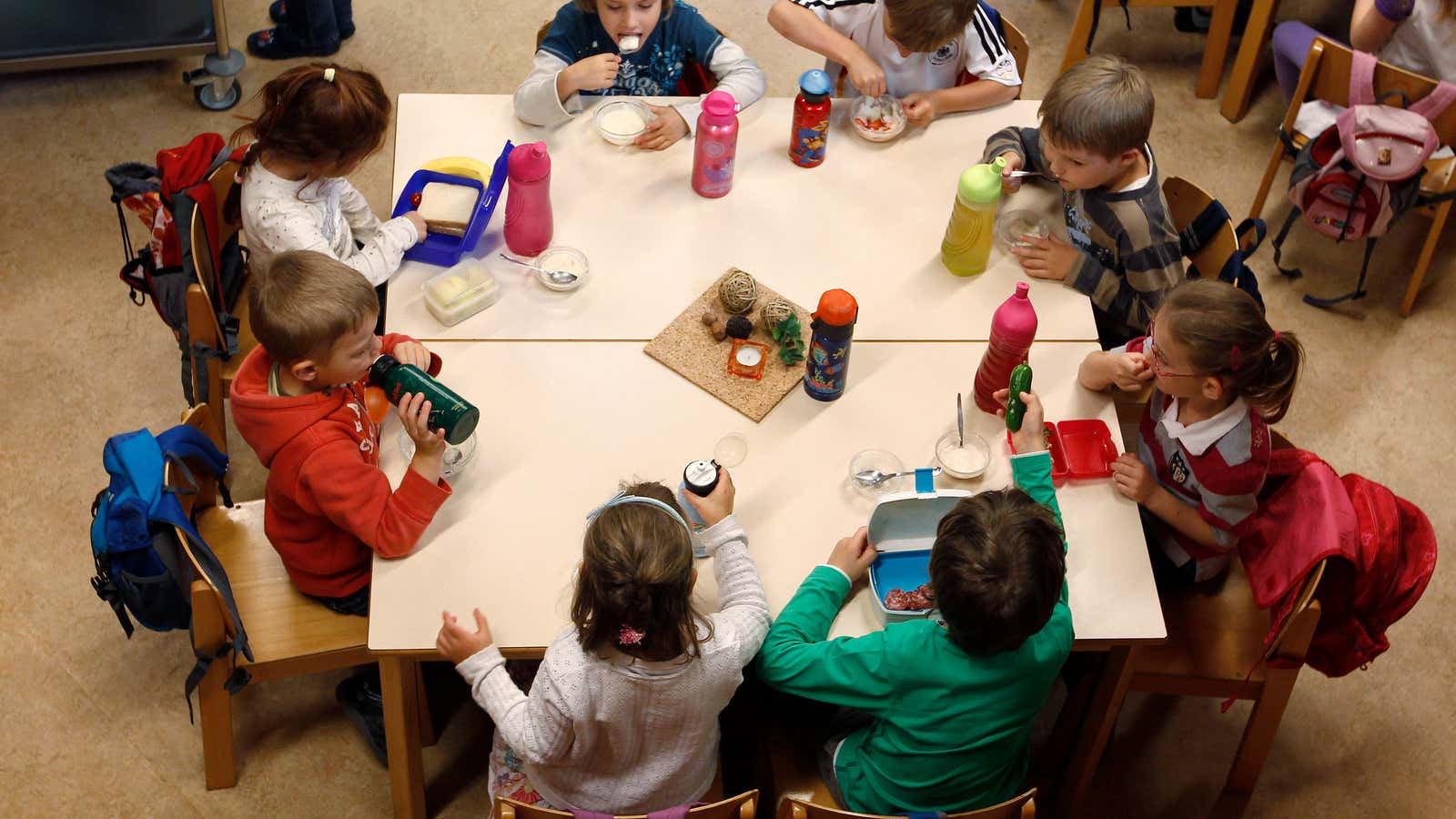Scientists are able to use brain tests on three-year-olds to determine which children are more likely to grow up to become criminals. It sounds like Minority Report come to life: An uncomfortable idea presenting myriad ethical concerns. But, though unnerving, the research is nuanced and could potentially be put to good use.
In a study published in Nature Human Behavior, researchers led by neuroscientists at Duke University showed that those with the lowest 20% brain health results aged three went on to commit more than 80% of crimes as adults. The research used data from a New Zealand longitudinal study of more than 1,000 people from birth in the early 1970s until they reached 38 years old. This distribution, of 20% of a population accounting for 80% of an effect, is strong but not unusual. In fact, it follows the “Pareto principle.” The authors write in their paper:
In Pareto’s day, the problem definition was that 20% of families owned 80% of land in Italy. The so-called Pareto principle is alive and useful today: for example, in software engineering, 20% of the code is said to contain 80% of the errors.
The study found that the same 20% account for considerable demands on the state in other ways: They went on to make up 57% of nights in hospitals, 66% of welfare benefits, and 77% of fatherless child-rearing.
Brain health, which was measured using tests of reflexes, language understanding, motor skills, and social skills, is not the only indicator of future criminality. After all, it’s widely acknowledged that socio-economic status and child maltreatment have a major impact on adult outcomes. But the researchers made sure to isolate each of these factors.
“We took out all the children in the cohort who were living below the poverty line and re-ran our statistical analysis and got the same kind of effects,” says Terrie Moffitt psychology and neuroscience professor at Duke University and author of the study. “There aren’t so many children in middle class and wealthy homes who have poor brain health, but, where they are, they’ve also grown up to be very high cost users of public services.”
It’s important to note that it’s not as though every individual in that lowest 20% of brain health went on to commit a crime. But though it shows childhood circumstances have significant impact, Moffitt says the findings also don’t remove responsibility for criminal acts. “The vast majority of people don’t commit crimes. People make a choice to commit crimes or not every day. Their other choices can be limited by their brain health but they still have to make an active choice to commit a crime, so everyone still has responsibility for that,” she says.
The neurological aspect can, at first reading, seem more deterministic social factors. But this is not the case. “Brain health is one we know from model projects can be improved,” says Moffit. “It’s really hard to improve social class. But child’s brain health, if you get in early, there’s a lot of demonstrations on how to improve that.”
But does this mean toddlers will be screened for potential signs of criminality and taken aside for special treatment? Not necessarily. Although Moffitt does believe there should be interventions at a young age, there are significant benefits to everyone receiving the same intervention—which is likely to involve early education programs. Screening children and identifying problems can be more expensive than simply giving the same intervention to everyone, she says, and a universal policy (such as high quality public health care or public school) is often more politically popular.
Moffitt says one major theory about why a child with poor brain health would commit crimes as an adult focuses on school experiences. “If they can’t benefit from school and have that initial bad experience, by the time they leave school, they’re not well prepared to interact with other government systems like the courts,” she says. “They’d tend to be truant, leave school with no qualifications, be unable to get a job and sink down into the underclass. Crime is an appealing alternative as a way to make a living for someone with poor brain health.”
Ultimately, Moffitt believes these findings should make us more compassionate towards those who become a drain on the state as adults.
“It’s easy to take a pejorative view. But when you add the second step, that they didn’t have a fair start at the very beginning of life because they were disadvantaged by the health of their brains, it brings more of an obligation on us to feel compassionate,” she says. “It also tells us, gee, something can be done. Our study shows how bad things can be when children don’t get any help as pre-schoolers. That’s true of children who grew up in the 1970s but it doesn’t have to be true of children born in 2020.”
